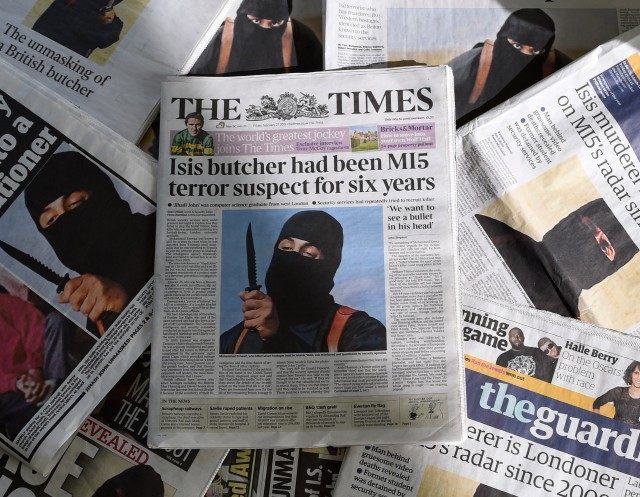A landmark legal ruling means Britain’s voluntary sector regulator, the Charity Commission, faces a judicial review of its decision to pressure charities into cutting donations to Cage. The British advocacy group linked to Islamic State (IS) executioner ‘Jihadi John’ previously alleged the regulator exceeded its role, acting like “counter-terrorism police.”
Cage, known as CagePrisoners before a rebranding exercise, works “to empower communities impacted by the War on Terror.” Described in The Telegraph by counter-terrorism expert Douglas Murray as “a pro-terrorist group, not a human rights group” it is not itself a charity but relies on donations from grant-making charities for its advocacy work.
The Guardian reports the commission allegedly overstepped its statutory powers when it asked the Joseph Rowntree Charitable Trust (JRCT) and the Roddick Foundation to commit to never funding Cage again, warning that further donations risked damaging public trust in charity.
According to the commission, JRCT confirmed grant awards to Cage of £305,000 between 2007 and 2014, of which £271,250 was paid. The Roddick Foundation made grant payments of £120,000 between 2009 and 2012.
The warning was made after the group claimed Mohammed Emwazi, the Islamic State executioner also known as ‘Jihadi John’, had been radicalised by Britain’s intelligence services. Those allegations were made in February by Cage’s research director, Asim Qureshi, who described ‘Jihadi John’ as “extremely gentle, kind… a beautiful young man.”
Cage’s lawyers say the allegation against the Charity Commission raises major constitutional issues on whether the commission can require assurances from charities not to spend private money in support of controversial causes. The group previously complained of operating in a “climate of fear” which they said undermined fundamental freedoms of expression and association and left charities reluctant to engage with controversial issues.
Lord Justice Burnett yesterday ruled Cage’s complaint regarding assurances relating to donations is an appropriate ground for judicial review, a costly process which can take months to complete. However, the suggestion that the commission’s actions violated Cage’s right as an advocacy group to express its freedom of association and it was therefore unfair to exercise those powers without seeking representation from Cage first, was rejected.
Dr Adnan Siddiqui, the director of Cage, said:
“We are pleased at [this] decision. The rule of law remains an ideal worth striving for in the interests of good government and peace at home and abroad. The Charity Commission’s actions against Cage have sent a chill through the charity sector, and this is a welcome step in the right direction for all members of civil society.”
It is proving to be an expensive week for Cage in terms of legal fees. On Tuesday it announced it is also seeking legal advice on whether David Cameron could be guilty of defamation for labeling it an “extremist” organisation which supports IS and Jihadi John during his counter-terrorism speech.
The group also complained formally to the United Nations about what it sees as “sustained attacks on its ability to do its advocacy work.”

COMMENTS
Please let us know if you're having issues with commenting.